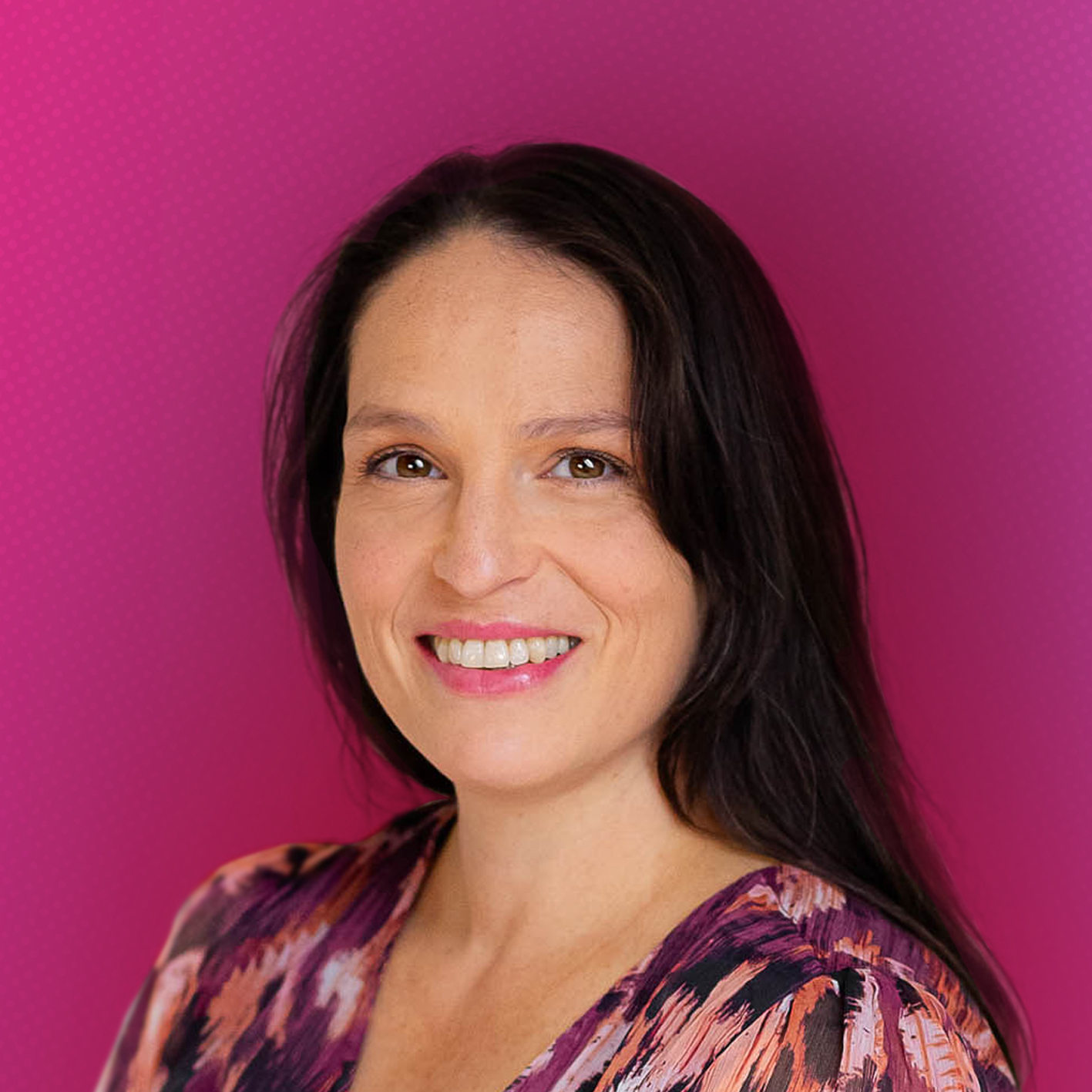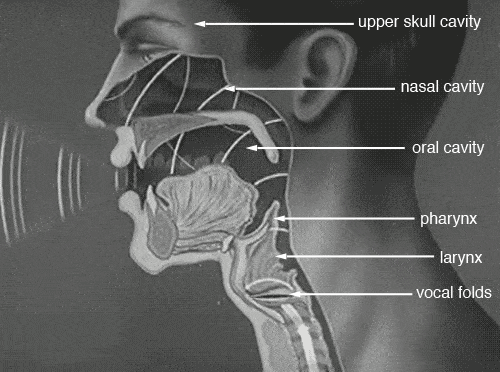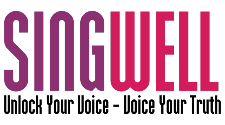Are you a professional who uses your voice daily, in meetings, on stage, or with clients? You want your voice to carry authority, but also be pleasant and easy to listen to. Maybe you’ve noticed hoarseness, strain, or that your voice tires out quickly. The truth is: your speaking voice is just like your singing voice: it needs healthy technique and care.
This article is part of my broader work on Mindset and Confidence for singers and speakers. Here I’ll share proven methods to keep your voice strong, clear, and attractive — so you can communicate with confidence and protect your voice long-term.
As someone who's "just a voice teacher" I needed to educate myself on the topic of sales, so I gathered all the different traits you want in your voice to make it attractive for - how do you call them? - prospects.
You need...
- some resonance in your sound, with a variety of qualities
- some confidence in your sound
- most of all - you need ease in your sound
So let's get started, I'll teach you how to get all above traits: Resonance, confidence and ease with practical exercises to achieve them. Prepare yourself to become even more awesome a salesperson than you already are.
Why is vocal ease the bottom line for you as a salesperson
People can tell by your body language what your state of mind is, right? You have learned that by now. They can also tell your emotions through your voice. If you are tense, and your voice is tense, people hear it. If you are "hiding" your voice, muffling it with breathiness and extra muscle tension - they can tell. If your voice is not at ease, you are not at ease, and they are not at ease. Good luck getting their trust that way...
But that's only one aspect of it. That's just how customers perceive you. There are a few exceptions of people who can sound good even when having effort in their voice (I'm actually one) but the trouble here is that you can't do it for long. You will get vocally tired, then loss of voice, vocal injury and even surgery can follow.
Vocal ease is the bottom line, because you need your voice to have longevity and health. Because it is your livelihood.
How to master your tone in sales
In short, what you need in order to get control over your voice, is to start using it in a new way, but not only "practice" it, but incorporate it into your daily life.
If I give you an exercise, you can of course try it out of context. But then! Keep in mind wherever you go. When you talk to potential clients/buyers or when you are on your phone with your partner. As often as you can. That's how you will build new habits, healthier habits, with your voice.
About the author

I’m Linor Oren, founder of SingWell. I have an opera background and in the past I've performed on stage. I've taught hundreds of students how to find their authentic voice. What I’ve learned is that singing isn’t about being “born with it” — it’s about unlocking what’s already inside you with the right tools and guidance. My passion is helping singers at every level grow in confidence, technique, and joy, so they can sing with freedom and expression.
The 3 main vocal traits for an attractive voice
You will find all sorts of advice on how to use your voice in sales. But it all boils down to three main things: Resonance, confidence and ease. Here they are in bullet point, we'll go deeper into how they work and how to achieve them bellow.
- Resonance: Resonance can be referred to as the quality/tone of your voice. There are a couple of ways to go about shaping what your voice will sound like: affecting the spaces inside your vocal instrument and controlling the air in your voice.
- Confidence: How do you deliver a single phrase or paragraph while talking to someone? Do you hesitate, or do you have a healthy sound/air flow supporting your voice?
- Ease: This is the health and freedom of your sound. If you have vocal issues, hoarseness, fatigue, weakness, breathiness, or on the other hand a shouty, aggressive, strained voice - that's not a luring, reassuring voice and definitely not a sustainable one.

"
“Your voice is not just a tool for communication, it’s an extension of your confidence. When your voice is free and healthy, people don’t just hear you, they trust you.”
Resonance
OK, so we should control the level of resonance and play with our tone of voice, but how?
Two ways to control and change your vocal resonance
1) Through the resonance spaces themselves: we have spaces inside our skull and throat where our sound waves can move and vibrate. Here's a cool illustration of them:

When you pay attention to your resonance spaces, you can maximise the richness of your voice. In this article about open throat I show you how to start developing the awareness of your vocal resonances.
(It's about singing with an open throat, but first the first tutorial teaches you how to actually open it, through kinaesthetic awareness)
2) Through air management: when you use more air in your voice, you can soften its quality and lower its volume. Using less air will give you a fuller, louder sound.
This sounds counterintuitive, but it's true! Imagine using a ton of air in your voice - that's whispering, right? So, little air in your voice will get you more volume. More air - less volume.
Confidence
To have confidence the most basic thing you want to keep in mind is the non-stop principle. I use al kinds of creative, fun exercises to improve people’s performance on stage. Because at the end of the day a good performance is about confidence. So is the performance of your speaking voice when you are with a prospect.
When you talk to someone in order to persuade them - it’s a performance.
If you want it to be a good performance you need the non-stop principle. In a nutshell, this means, start and then don’t hesitate or pause. Just like a singer would never stop mid-song and declare: let's try that again - so you go through your phrases with conviction that you know what you are talking about, and you don't hesitate, stop, or slow down. That doesn't mean you can't make errors, we all do! But it's about owning these, not letting these errors getting in the way of a performance.
But what about verbal pausing?
Yeah, I know. I've heard this term while learning how to sell on YouTube, too (maybe I'll be able to sell that bread at that bakery after all this research lol). If you want to use verbal pausing - meaning you intentionally wait a bit before continuing to talk - here's how to do it:
Do it all intentionally, and know what's coming after your pause. You don't just stop talking and wait. That's when people lose you. You take that break in anticipation of what you are going to say next. That will still maintain your non-stop principle! Because in your mind, and therefore in the listener's mind, there's something coming. There's a continuation. And your confidence is intact.
Speaking about speaking
I do training events for companies, ideal for salesforce, teaching and demonstrating how to use the voice to your advantage and keeping it safe. You don't want that "I have no voice today" call from your people..
Vocal ease
Achieving ease in the voice is not only important to make your listener/potential customer feel at ease, but also for your own vocal longevity. If you use your voice wrong, you’ll only be able to do that for so long, before loss of voice, vocal injuries and even surgery happens.
Your voice is on the inside. It’s inside your body, not outside. To get more volume, presence, or comfort, or anything done with your voice, you should always point your attention inwards.
Instead, unfortunately, most people think outwards in order to “project” the sound, and be more present and audible. Then they use extra air and muscle to do that.
Instead of thinking about projecting the voice, to get the result you want, think about where you voice is made. Inside your body. Direct the voice (or vibrations if you will) inwards, through your mouth/nose to the back of the head then down all the way through the chest to the bottom of your ribs. This will be a cue fro your brain to relax the unnecessary muscles that are trying to "help" in manufacturing the voice with effort.
You will get more sound (because you focus on your resonances) with less effort (because there's less resistance). Win-win, if you ask me.
Exercises for a good, sexy salesperson voice
1. Resonance - talk backwards
Say the word: Hi!. Now say it again, and imagine you are talking to someone who's standing behind you. Let your voice reach them. You don't have to make any special moves for this. Your brain will activate what is needed for this.
You can go ahead and do the same with a phrase, like: Hi, my name is ____, what's your name?
For a more powerful sound: Think the person is further back, or in a room behind the wall that's behind you. Scale it up more by thinking of a big group instead of one person.
For a softer sound (that is not dissapearing): say the words in the character you want. YOu can imagine a situation in life where you'd be comforting, concerned or empathetic, and use that voice. Then keep the backwards direction in mind.
2. Confidence - the non-stop principle
Say the phrase: Hi, my name is ____, what's your name?
Start a split second before you are ready, that way you'll prevent hesitation. Then go through the entire phrase without assessing it, judging it or wondering how it sounds.
If you want to implement any tonality/phrasings/pausing you have learned - decide on those in advance, and then when it comes to saying the phrase - just go, go, go!
Your mantra: Whatever came out of my mouth was my intention. There is no need changing or fixing anything, it's perfect the way it is.
3. Vocal ease - the hand trap
Lay one hand on your chest, just under your collar bones. Lay the other hand under your skull on the back of your neck. Now make the sound: NG (like at the end of the word tongue, or sing). See if you can feel some vibrations on both hands.
If you can feel a "buzz" or vocal vibration on a certain hand, point your attention to that hand when you make the sound again. Like in the fisrt exercise, imagine the sound going in the direction of your hands.
I recommend to visualize/feel a specific direction: from your month/nose to your neck hand and from there to the chest hand. That way you prevent pushing the voice and relax the neck/throat/chest muscles down.
No longer a little mouse...
Maybe you feel it's time to stop shushing your own voice and take your desire to sing serious. My weekly 'Belting Mouse' mail shows you how. It gets you on track with stories and insights from my life as a singer and that of my students.

For 'little mice' who are tired of squeaking and want to start belting...
Take your desire to sing seriously: get tools to become a better singer in your inbox
Eye-openers, tips and stories. Also content that I don't publish on my website.
Frequently Asked Questions
Why does my voice feel tired or strained after speaking for a long time?
Because speaking uses the same muscles and breath coordination as singing, tension or poor technique can cause fatigue. Developing vocal ease and resonance through simple daily exercises helps your voice stay strong and healthy.
How can I make my speaking voice sound more confident and attractive?
Focus on three main traits: resonance, confidence, and ease. Resonance gives your sound richness, confidence gives it authority, and ease keeps it pleasant and sustainable. These can all be trained with practice and awareness.
What are the best daily habits for maintaining a healthy speaking voice?
Warm up your voice for a few minutes each day, stay hydrated, avoid shouting or whispering for long periods, and practice mindful speaking exercises such as the “hand trap” and “talk backwards.” Consistency builds both vocal health and confidence.
